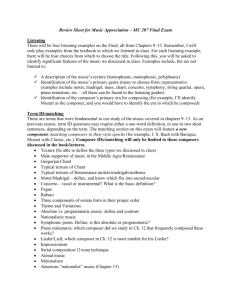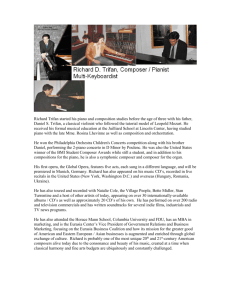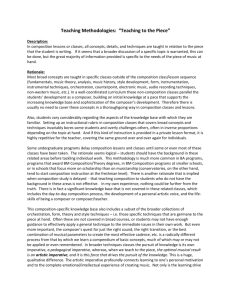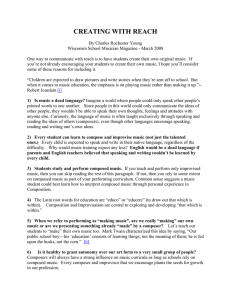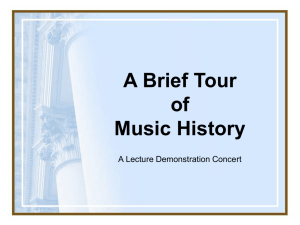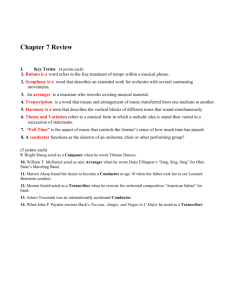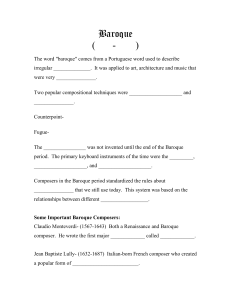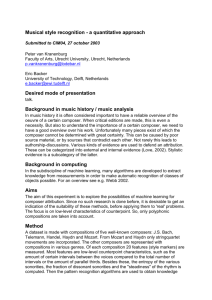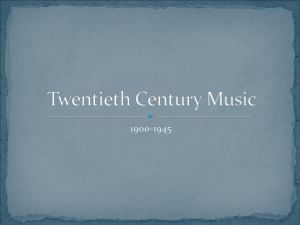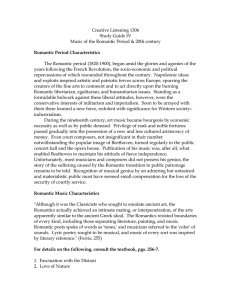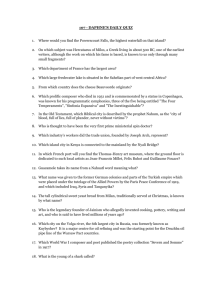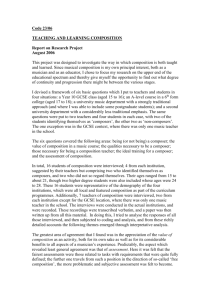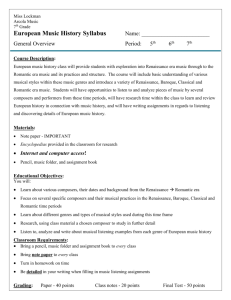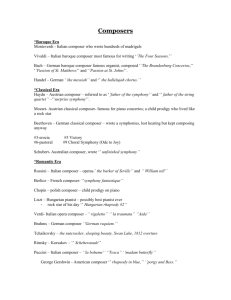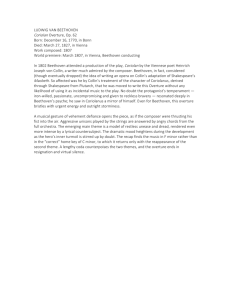Music and Human Values: Philosophical Investigations
advertisement
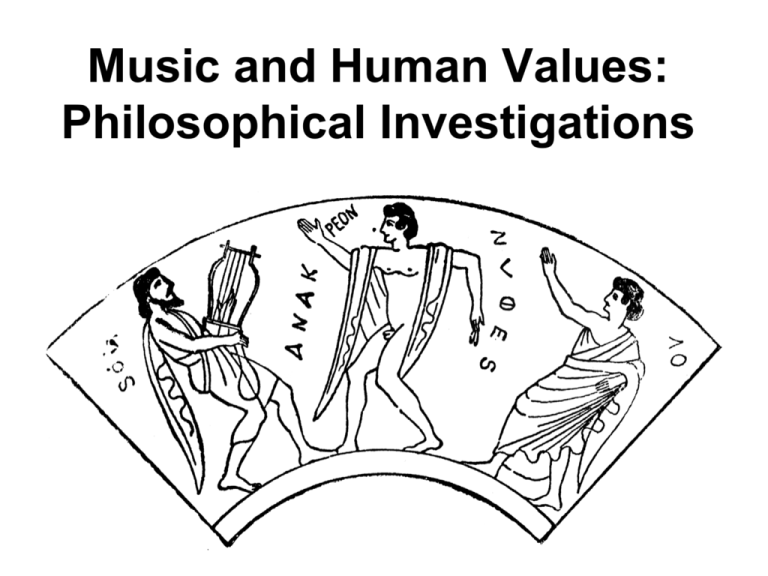
Music and Human Values: Philosophical Investigations • What makes music valuable? • Can music be appreciated only for its beauty? • What is the significance of music in human life? This course will introduce you to a number of ‘masterpieces’ from the western classical music tradition. You will have the chance to listen to them and learn about why they are valued as works of art. In preparation for this, you will be taught the basic vocabularies of music criticism including rhythm, melody, harmony, texture, form and so on. Upon completing this course, you will be able to enjoy music in a more active and focused manner. At the same time, you should be able to identify philosophical and ethical issues related to music as a cultural phenomenon. No previous training in music (theory or performance) is needed. A list of topics 1. 2. 3. 4. 5. 6. Values in music? Philosophy of art and music The elements of music Music and beauty Music, representation and narrative Music and form 7. Music and emotion 8. Music, death and religion 9. Music and ideology 10. Music and creativity: the shock of the new 1. Values in Music? • What makes a work of music valuable? Ludwig van Beethoven (1770-1827) is considered by many to be the greatest composer ever. What are Beethoven’s masterpieces? What makes them great? 1. Values in Music? • Can a piece of music be appreciated in different ways? Can one say that a military leader such as Napoleon Bonaparte has made a greater contribution to humankind than a composer such as Bach, Mozart or Beethoven? 2. Philosophy of art and music • What does it mean to study art and music from a philosophical perspective? Music plays an important role in ancient Greece. For example, Plato (424/3-348/7 BCE), believes that music can play a significant role in the education of the citizens in his ideal republic. 2. Philosophy of art and music • What are the contributions of philosophers on the discussion on art? Plato’s view on music is shared by the Chinese philosopher Confucius (551-479 BCE). Confucius believes that an education in music can help to cultivate a person’s moral character. 3. The elements of music • What are the elements of music? • Is it appropriate to say that music consists of ‘organized sound’? 3. The elements of music • How does knowledge about the elements of music help us understand, describe and analyze music? 3. The elements of music No previous training in music is needed! This course will introduce you to the following concepts: Pitch Rhythm Tempo Scale Melody Harmony Texture Instrumentation Form Style 4. Music and beauty • What does it mean to say that a piece of music is beautiful? • Is beauty the only value of music? 5. Music, representation and narrative • Can the value of music lie in its ability to represent reality? • How can music tell a story? 6. Music and form • What does it mean to say that music has a form or structure? Despite the claim that music consists mainly of sound waves, it is often considered to possess form and structure. That’s why there is often the reference to what is known as ‘musical architecture’. 6. Music and form • What does it mean to say that music has a form or structure? • What are the most important musical forms? How do they work? Paul Klee (1879-1940), Fugue in Red (1921) 7. Music and emotion • What does it mean to say that music can express emotion? Edvard Munch’s painting, The Scream, is famous for its expressive power. While music is often believed to be able to express deep emotions, it is far from clear how music can express emotions. 8. Music, death and religion • What is death? • How can a composer confront death through his or her music? Gustav Mahler (1860-1911), a great composer of the romantic period, is obsessed with death and is very superstitious. As a result, his symphonies are often associated with death. 8. Music, death and religion • Can a composer’s religious beliefs affect his or her view on death? • Does religion impact on how composers create their music? 9. Music and ideology • Can music be ideological? This picture is taken when the Berlin Philharmonic Orchestra was performing in Nazi Germany. Can one say that the Berlin Philharmonic Orchestra is working in support of Nazism? 9. Music and ideology • Should one consider the ideological aspects of a musical work when one is trying to understand and appreciate it? Adolf Hitler (1889-1945), the leader of the National Socialist Party, is said to be a great admirer of the composer Anton Bruckner (1824-1896). The bust of Bruckner can be seen on the left hand side of this photo. 9. Music and ideology Dmitri Shostakovich was a Soviet composer who lived under the oppressive regime of Stalin. Like a lot of Soviet composers of the 20th century, Shostakovich’s music was censored by the authorities. Can composers be truly creative when they live under such restrictive circumstances? 10. Music and creativity: the shock of the new A scene from Igor Stravinsky’s The Rite of Spring. The first-performance of which caused a riot in Paris in 1913. 10. Music and creativity: the shock of the new • Are there different ‘languages’ of music? Does modern or contemporary music possess a ‘language’ which is different from traditional classical music? Lawrence Alma-Tadema (1836–1912), Sappho and Alcaeus (1881) A final point: • This course will be suitable for any student interested in music (especially classical music). If you want to know more about music and its roles in human life, this course can offer you a lot of opportunities to experience and think about music.
